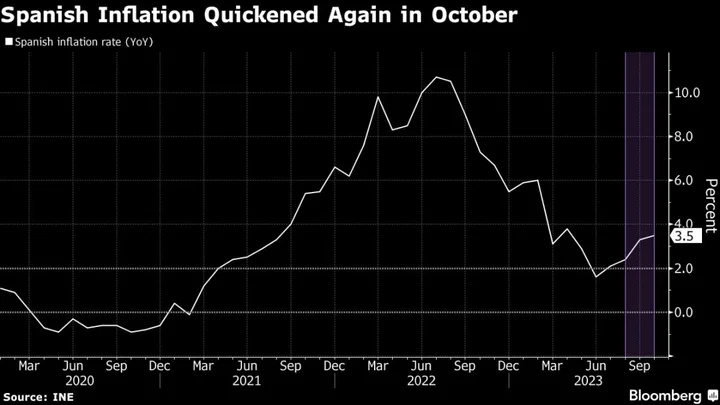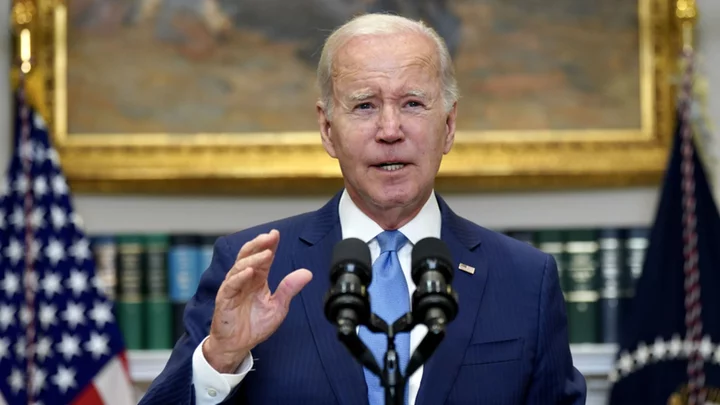Spanish inflation accelerated for a fourth month, hitting the highest level since April and supporting calls to prolong government measures to shield households from the worst cost-of-living crisis in a generation.
October’s reading of 3.5% was largely due to electricity costs, the national statistics institute said Monday. That compares with 3.3% a month earlier and is less than the 3.8% median estimate in a Bloomberg survey of economists.
A measure of underlying pressures that excludes energy and fresh-food costs slowed to 5.2%.
While Spain was the first major euro-area economy to see consumer-price growth dip under the European Central Bank’s 2% target following Russia’s invasion of Ukraine, it’s recently been on the wrong side of base effects. The Bank of Spain predicts inflation will continue to quicken next year.
Monday’s numbers could ratchet up pressure on Acting Prime Minister Pedro Sanchez, who must decide by year-end whether to extend a series of tax cuts and subsidies — notably on public transport — that were put in place to ease the inflation shock on Spaniards.
Before he can do that, however, he’ll need to form a government. While the prospects for that are looking positive, uncertainty remains.
Things are a little clearer on the interest-rate front. The ECB last week left borrowing costs unchanged for the first time in more than a year following an unprecedented tightening campaign. Officials have indicated that rates must stay high for some time.
While less than a fifth of Spanish mortgage holders are locked into variable-rate loans, Economy Minister Nadia Calvino is among southern European politicians who’ve winced at the ECB’s rate aggression, though she hailed the pause as “positive.”
Spain kicks off a spate of inflation data from across Europe, with early regional numbers from Germany pointing to a steep national slowdown. For the 20-nation euro zone as a whole, the retreat will be similarly pronounced. Analysts see a moderation to 3.1% from 4.3% when numbers are released on Tuesday.
--With assistance from Joel Rinneby, Ainhoa Goyeneche and Rodrigo Orihuela.









